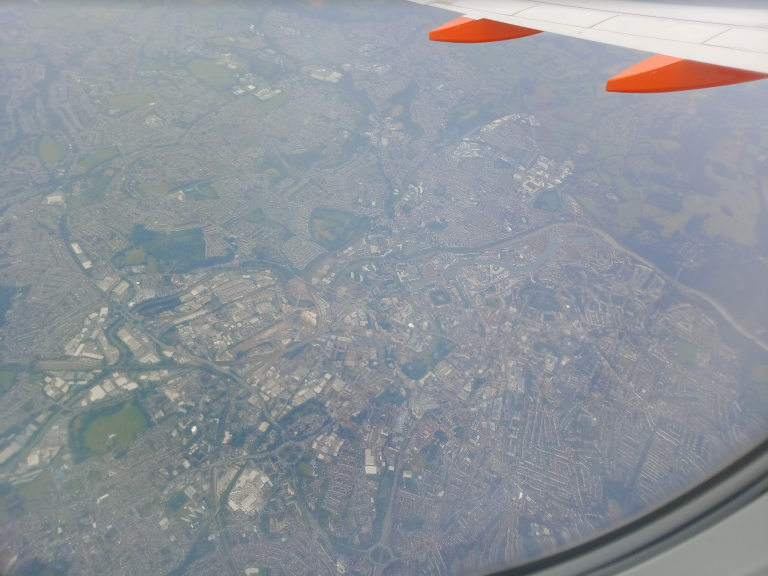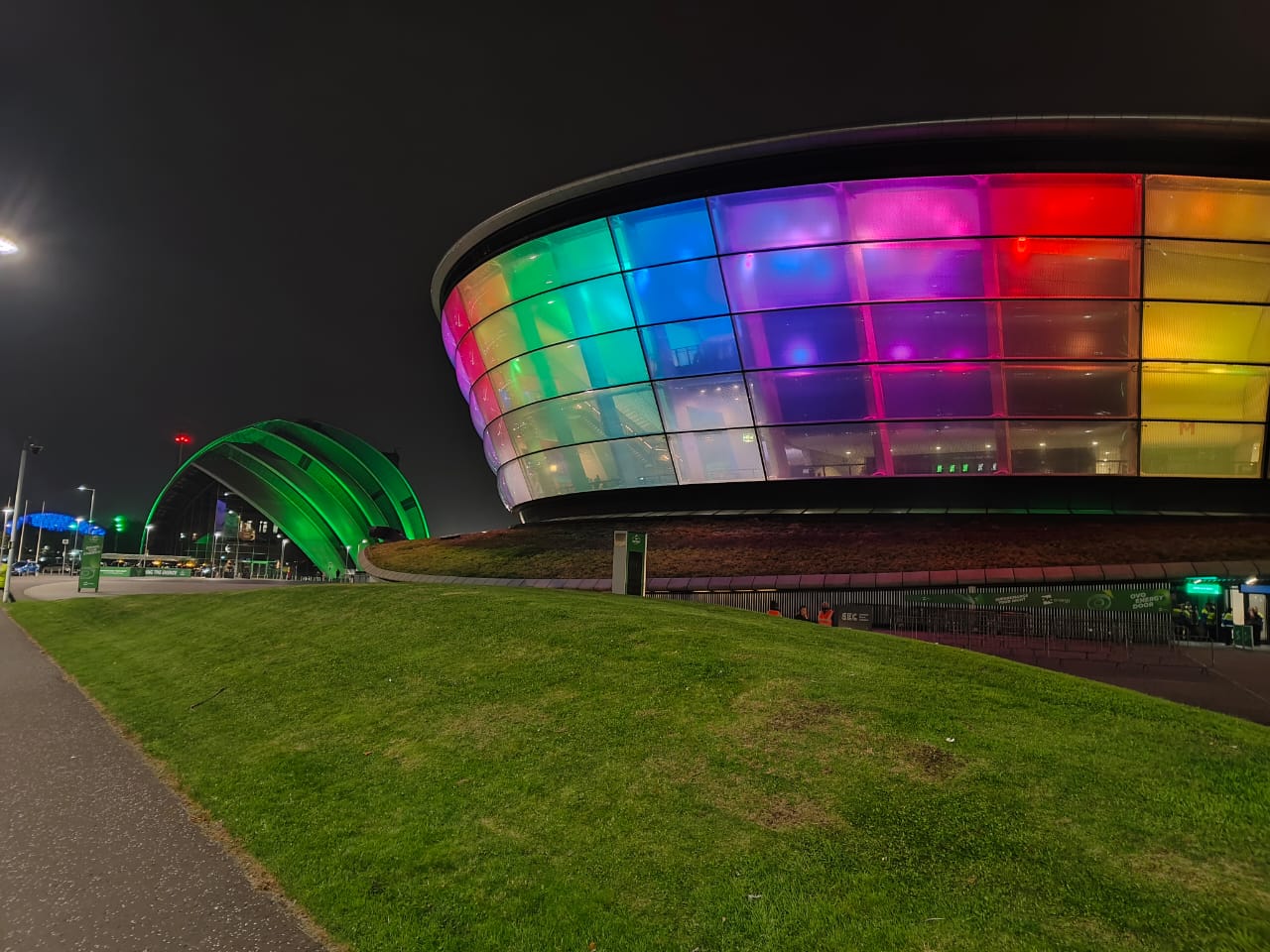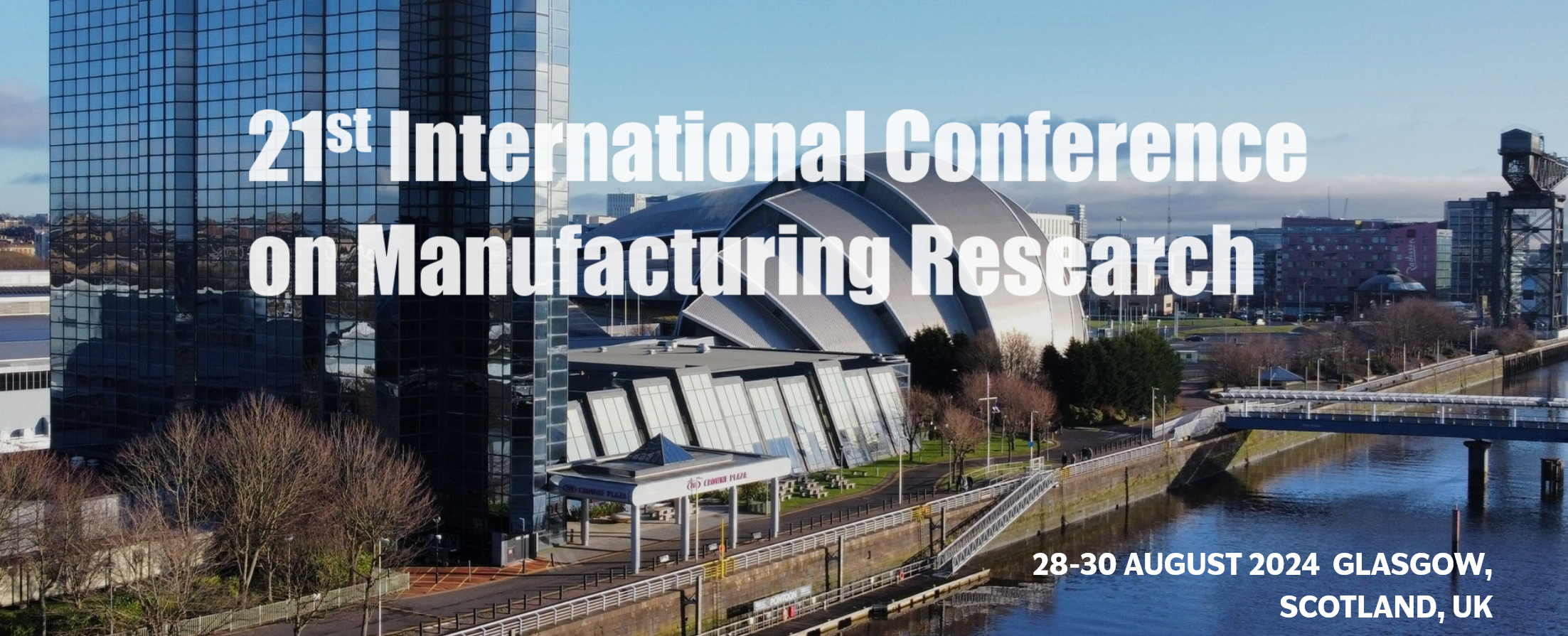The International Conference on Manufacturing Research was held in Glasgow this year. The team were presenting two papers that set the scene and provide the rationale for the DMF research themes of Artificial Intelligent agent (AIgent) supply chains and AIs role in future manufacturing workplaces. The two papers were:
Global Local (Glocal) Supply Chains for Green Economies: An assessment of Greenhouse Gas Emissions
James Gopsill*, Christopher Cox and Ben Hicks
Flexible manufacturing systems, such as Additive Manufacturing, Robotics and Computer Numerical Control (CNC) machines, can be readily deployed and operated in standard warehouse infrastructure providing the opportunity for the on-demand production of a wide variety of goods closer to their point of consumption. This has the potential to shift long-distance logistics towards raw material transport (which can be packed more tightly) and maximise the potential of zero-emission ‘last mile’ logistics. This paper reports a study to demonstrate the merits of Global Local (Glocal) supply chains in terms of the potential reductions in Greenhouse Gas Emissions (GHG). The study used the United Kingdom (UK) and its seven largest cities as the areas of supply and demand with material entering through Dover. The Monte-Carlo simulation showed that distributed production significantly outperforms single location manufacturing and product importing by up to 2-3x.
Supporting manufacturing interactions through Artificial Intelligence: An appraisal of the literature
Aman Kukreja, James Gopsill*, Shuo Su, Aydin Nassehi and Ben Hicks
Artificial Intelligence (AI) is transforming how society works, from real-time classification mechanisms and enhanced patient diagnoses to large language models that can assist workers in real-time. With the increasing interest of the industry in digitising manufacturing, the role of AI will become even more important in promoting meaningful interactions among various stakeholders. This paper appraises AI manufacturing research from the lens of machine/process, human and system interaction. The results show that much of the literature has supported intra-machine/process and system-level interactions. Human-machine and machine-machine are less well-researched, and these require further investigation if society wishes to move to fully integrated Manufacturing Metaverse.



Aman Kukreja thoughts:
ICMR committee did a great job at organising the conference. It was wonderful to meet Academicians and Industry experts and listen to them present their research work. The Keynotes were especially useful, giving insights into several new techniques and ideas related to Metal forming, Additive Manufacturing, and AI. Our papers were very well received and sparked a discussion of the use of AI for Manufacturing Interactions.
The conference presentations followed a Technical Tour to NMIS (National Manufacturing Institute Scotland) Netherton building and AFRC building (Advanced Forming Research Centre). It was great to see their facilities and to discuss possible collaborations between our work at DMF lab and NMIS.
Glasgow City is very vibrant and welcoming. It was nice to walk around the river Clyde. I look forward to attending more such events in future.
Christopher Cox thoughts:
Strathclyde did a great job organising the conference and it was a pleasure to attend. It’s a great way to keep abreast of all the fantastic innovation and progress in the world of manufacturing. Specifically, the work on Additive Manufacturing (AM) in both polymers in metals was exciting to see, as well as the work done looking at how we can use other new bits of technology to boost our design and manufacturing process. Hopefully the connections made with academics from Strathclyde, Loughborough and more will develop into collaborations that push our research even further.
On a personal note, Glasgow is a fantastically vibrant and cultural city and we look forwards to more reasons to come back!
James Gopsill thoughts:
It was great to present to academic and industry leaders on the future of manufacturing supply chains and how it can become more distributed as a result of flexible manufacturing technologies such as Additive Manufacturing, CNC, robotics and manufacturing cells. There was a great deal of research in Additive Manufacturing (AM) which is further pushing and maturing its capabilities to produce all manner of products. This is really emphasising the need for our work on Brokering Additive Manufacturing where we have AIgents embedded on the machines so they can talk to one another across organisations and industry boundaries so that jobs can be done in a timely manner, to specification and at locations near consumption. I made some great connections with people interested in using our AIgent Living Lab software in their own institutions. This may be the start of the world AM machine network.
P.S. Glasgow is an amazing city and I look forward to visiting again soon and working with the research teams up there.
Round up
It was a fantastic experience with lots of engaging discussions and we are looking forward to attending again.

